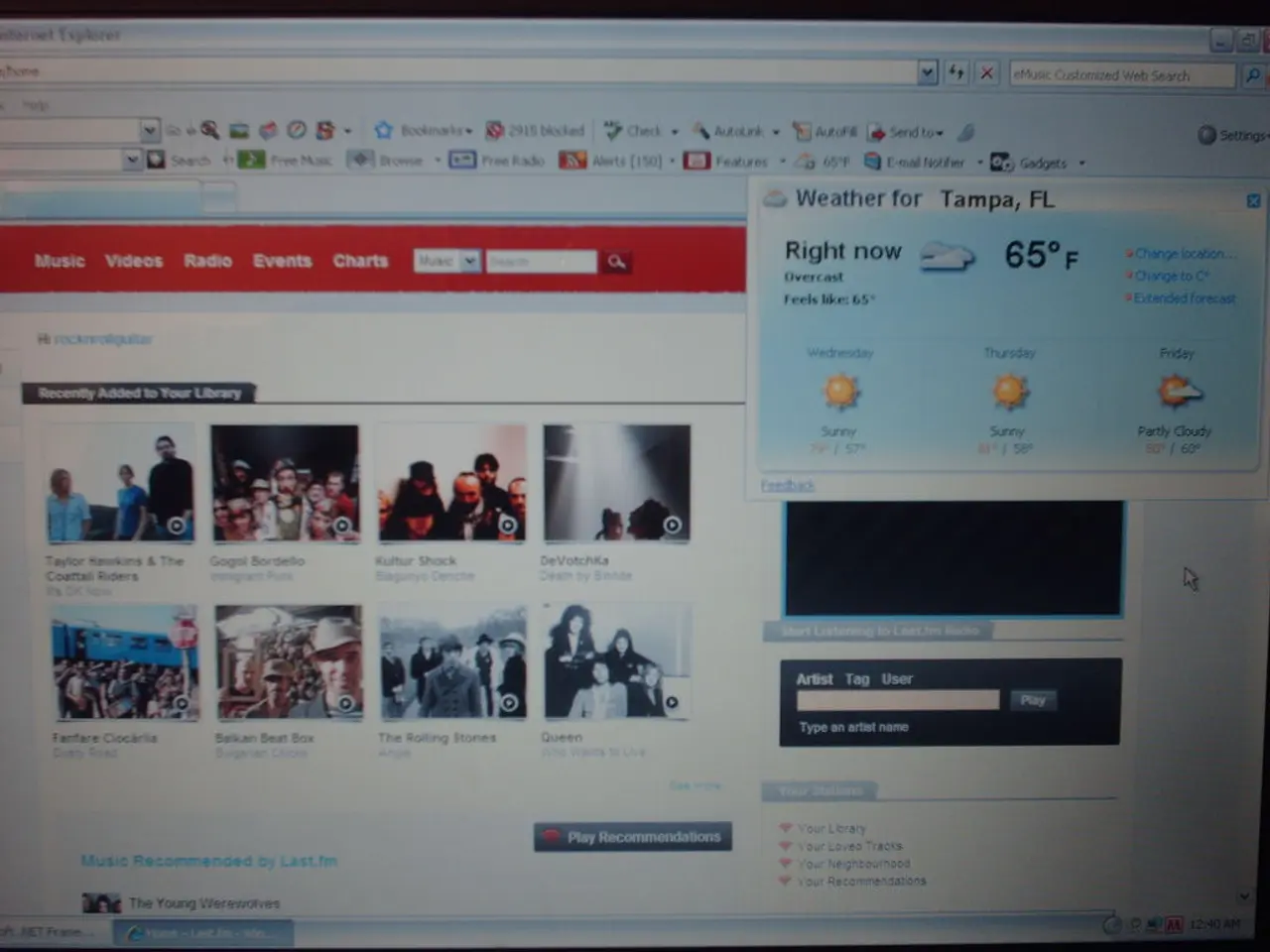YouTube Introduces Age Prediction Feature
In the digital age, protecting minors from adult content and harmful material online has become a global priority. This shift towards stricter age-gating regulations, especially since 2023-2025, is not limited to pornography sites but extends to any platform hosting content deemed harmful to children.
United Kingdom
The UK's Online Safety Act 2023 mandates rigorous age verification for online services accessible to UK users. This includes platforms with content related to pornography, self-harm, suicide, and eating disorders. The communications regulator, Ofcom, enforces these rules, requiring platforms to implement robust age checks such as verifying government-issued IDs, online ID services, bank, credit card, or phone information. Self-declaration of age is no longer sufficient [1][3].
European Union
The EU's Digital Services Act promotes similar protections. The European Commission has introduced an age verification app prototype to support compliance, helping ensure minors cannot access age-restricted content online [2].
United States
While there is no comprehensive federal law yet, certain states have passed laws mandating age verification for accessing adult content. For example, the Texas law requiring porn sites to verify users’ ages was upheld by the US Supreme Court recently. Broader adoption of age verification laws in the US is expected soon, driven by legal trends, advocacy, and parental demands [2].
Major Platforms
Major platforms such as Bluesky, Reddit, X, Discord, and others have implemented or announced the deployment of age verification systems worldwide, especially in jurisdictions enforcing these laws. Verification methods often include submitting IDs, facial scans, or credit card information [1].
Age Verification Mechanisms
Acceptable verification methods under these laws often involve checking government IDs, using third-party online ID verification services, or employing credit card, bank, or phone records. Simple self-declared age confirmation is now widely rejected as insufficient [1][3].
Challenges and Enforcement
Although such laws aim to protect minors, loopholes exist; hacking and bypass tools for age checks appear rapidly, and some users may turn to dark web sources. Regulators like Ofcom are actively monitoring compliance and indicate they will impose significant fines on noncompliant companies [3].
YouTube and Video Platforms
On video-sharing platforms like YouTube, age gating typically involves restricting videos flagged as adult content to signed-in users who confirm they are over 18. Such platforms are increasingly subject to regulations like those in the UK and EU, requiring verifiable age assurance beyond self-reporting [1].
In conclusion, age-gating laws globally now require high-assurance age verification methods on adult content and other harmful material online, moving beyond self-reporting towards verified digital ID checks, driven by legislation such as the UK’s Online Safety Act 2023, the EU’s Digital Services Act, and emerging US state laws [1][2][3].
- By 2023-2025, the UK's Online Safety Act mandates strict age verification for UK users accessing online services, not just pornography sites.
- The EU's Digital Services Act also promotes similar protections, with the European Commission introducing an age verification app prototype.
- In the United States, certain states have passed age verification laws for accessing adult content, like Texas, and broader adoption is expected due to legal trends, advocacy, and parental demands.
- Major platforms like Bluesky, Reddit, X, Discord, and others are implementing or planning to deploy age verification systems, using methods such as ID submissions and credit card information.
- In the face of age-gating regulations, YouTube and other video-sharing platforms arerequiring verifiable age assurance beyond self-reporting, restricting adult content to signed-in users who confirm they are over 18.




